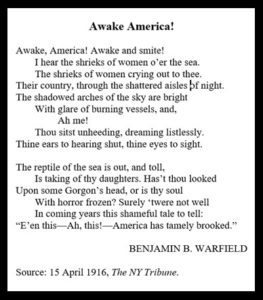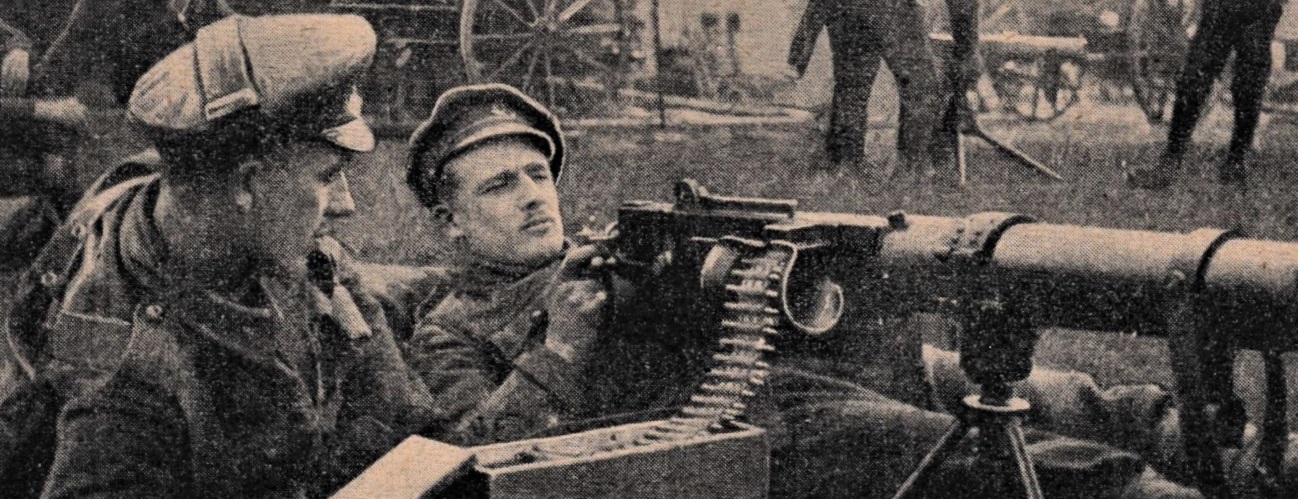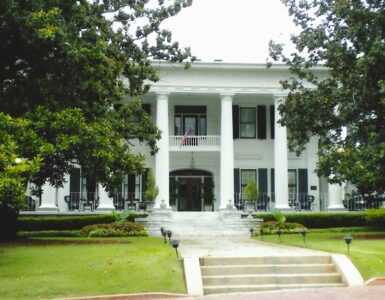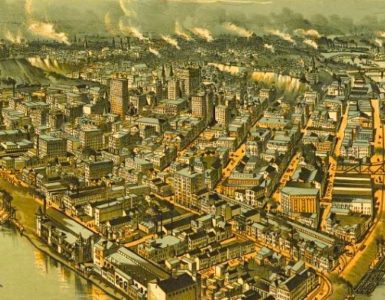For the centennial remembrance of the passing of B. B. Warfield today a different aspect of his varied interests will be considered. While Pershing was hunting Pancho Villa after his raid in New Mexico and numerous nations of the world other than the United States were engaged in battle, B. B. Warfield supported mobilization of American forces for entrance into The Great War. It was not unusual for ministers and professors of theology to write poetry in Warfield’s day. The ability to compose verse expanded vocabularies and contributed to their rhetorical skills. A qualified literary critic would provide the best assessment, but “Awake, America!” would not have caused any job security issues for T. S. Eliot, Edna St. Vincent Millay, or Langston Hughes.
In the poem that follows, the “reptile of the sea” likely refers to German submarines and not images from the book of Revelation. His concern is for the “women” and “daughters” who were suffering as their sons, husbands, fathers, and boy friends were being killed in battle. He turned to the Greeks for “Gorgon” a beast from the underworld to describe the enemy. The poem shows that added to Warfield’s many interests were concerns about national public policy and the world’s opinion of his homeland. At home and abroad newspapers and newsreels in theaters showed the wholesale death and massive devastation occurring in the war, particularly in France. There were many in the United States of not only German descent but also other national origins that just did not want the United States to enter the war. Warfield’s fellow Princeton University alumnus, Woodrow Wilson, would be re-elected President of the United States in November using the slogan “He Kept Us out of War!” only to declare war a month into his second term in April 1917.
Barry Waugh

Notes: The header shows a British machine gun crew in Flanders as from The War Illustrated, 1916. The first newsreel presentations were at the end of the nineteenth century. One nineteenth-century minister who wrote poetry was T. V. Moore.





